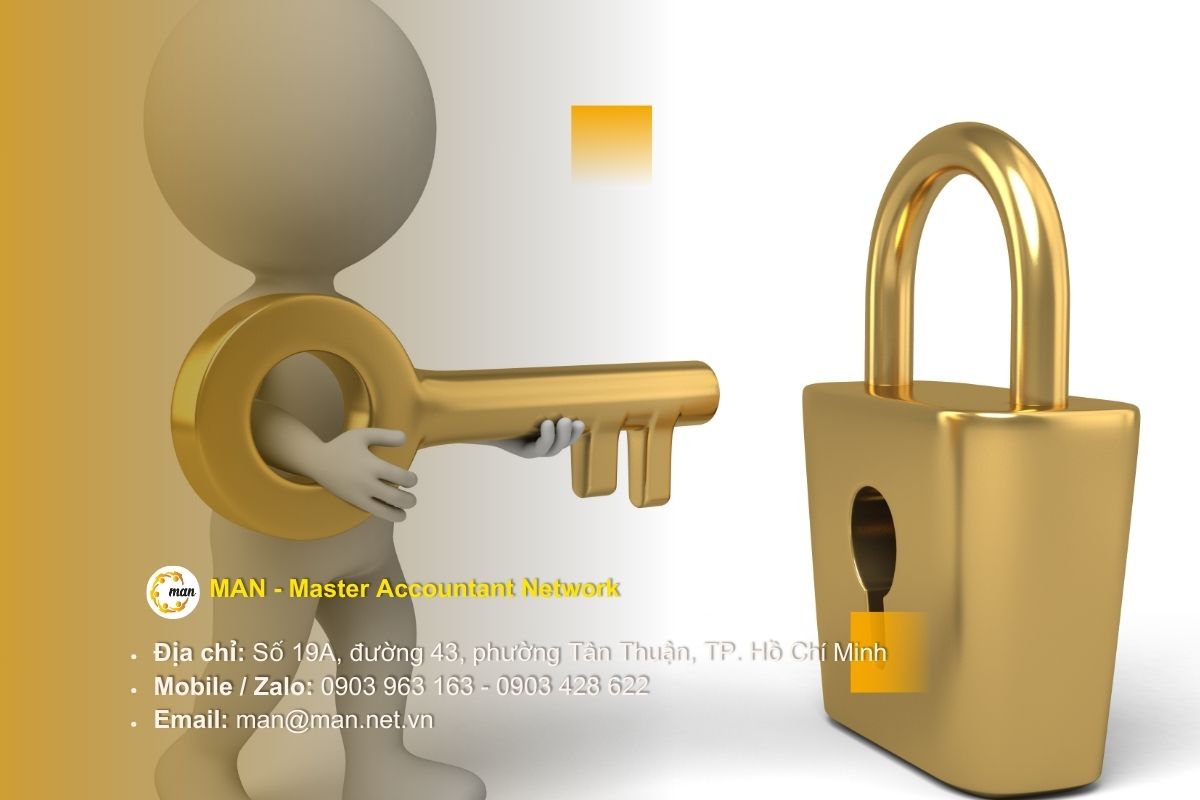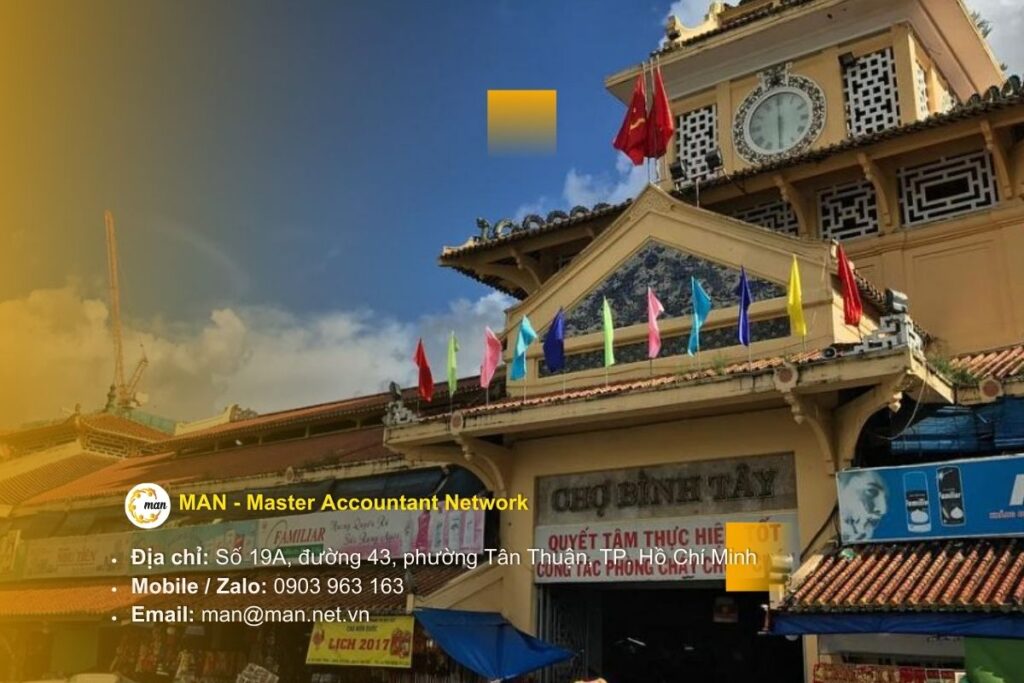Avoid tax assessment due to affiliate transactions This is a costly lesson for a multinational corporation in Vietnam when an audit discovered an unusual profit level in transactions with a parent company abroad. The tax authority then proceeded to assess taxes, leading to a large amount of arrears and disrupting investment expansion plans. This case shows that corporations with related-party transactions need to develop a strategy to comply with OECD standards and Decree 132/2020/ND-CP from the beginning to ensure stable and sustainable operations.
Concept of tax avoidance due to related party transactions
Avoid tax assessment due to affiliate transactions is a set of measures and strategies that help businesses minimize the risk of tax authorities redetermining tax obligations for transactions between related parties. This includes building complete records, applying OECD standard valuation methods, strict internal controls and timely updating of legal regulations. Proper implementation will help businesses limit tax arrears, administrative penalties and maintain credibility with investors.
Why do businesses need to avoid taxes due to related-party transactions?
Enterprises today face increasing compliance pressure from tax authorities, especially in relation to related party transactions between companies in the same group or between parent companies and subsidiaries. If the Arm's Length Principle is not followed, tax authorities have the right to impose taxes, leading to enterprises having to pay additional corporate income tax (CIT), administrative fines and late payment interest.

For that reason, avoiding tax imposition due to related-party transactions is an essential step to:
Protecting business finances
- Avoid sudden tax collections, penalties, and interest charges.
- Maintain stable cash flow, minimize risks affecting production and business activities
Protect reputation and relationships with partners and investors
- Enterprises that are transparent in their tax reporting will increase trust with shareholders, foreign investors and business partners.
- On the contrary, being taxed can have a negative impact on the company's reputation and image in the market.
Ensure compliance with laws and international standards
- Compliance with Decree 132/2020/ND-CP and OECD guidelines helps businesses minimize legal risks.
- Building an internal control system and transparent transaction price documentation is proof of compliance and support when tax authorities inspect.
Avoiding tax assessment due to related-party transactions is not only a legal responsibility but also an important risk management strategy, helping businesses protect their finances, reputation and maintain business operations.
Legal framework on related party transactions and tax assessment
In order for businesses to proactively avoid tax imposition due to related-party transactions, understanding and fully applying the legal framework is an important step. The two most important legal sources are Decree 132/2020/ND-CP of Vietnam and OECD guidelines on related party transactions. Below is a detailed summary of the legal framework to help avoid tax imposition due to related party transactions, for an intuitive view and proactive application:

Board: Synthesize legal framework to help avoid tax assessment due to related-party transactions.
| Criteria | Detailed description | Target |
| Local File | Prepare detailed reports on each related party transaction arising during the fiscal year. Includes contract, pricing method, profit analysis, comparison table with similar transactions of independent parties. | Demonstrate that transaction prices comply with the principle of independent market prices. Reduce the risk of being assessed tax by tax authorities. |
| Master File | Provides an overview of corporate structures, cross-border transactions, pricing policies and tax strategies. | Help tax authorities assess overall risk. Ensure the reasonableness of transaction prices between companies within the same group. |
| Country by Country Reporting (CbCR) | Report on revenue allocation, pre-tax profit, and taxes paid in each country. | Identify transfer pricing risks and tax collection. Increase transparency of financial and tax information. |
| Proof of basis for price determination | Keep records, comparative data, profit margins, audit reports. | Demonstrate the reasonableness of the transaction price. Minimize the risk of tax arrears or administrative penalties. |
| Apply the principle of independence (arm's length) | The transaction price between related parties must be equivalent to the price that independent parties would agree on. | Ensure transparency and fairness. Prevent transfer pricing risks and tax assessment. |
| Transfer pricing methods | Compare Independent Prices (CUP) Cost Plus Resale Price Net profit margin (TNMM) Profit Split | Choose the method that suits your type of transaction and industry. There is evidence against tax collection |
| Compare related transactions with independent transactions | Collect reference data, analyze benchmarks and compare profits and business conditions. | Demonstrate the reasonableness of the transaction price. Support businesses to avoid tax assessment due to related party transactions. |
In general, fully implementing the elements in the table above will help businesses effectively avoid tax imposition due to related-party transactions. From establishing Local File, Master File and Country Profit Margin Report (CbCR), to applying OECD standards in determining prices and comparing independent transactions, each step contributes to increasing transparency, minimizing the risk of tax collection and protecting the reputation of enterprises in the market. When implemented synchronously, enterprises not only comply with the law but also strengthen their tax risk management strategy.
After understanding the legal framework, businesses can be proactive in avoiding tax imposition due to related-party transactions. It can be seen the importance of fully complying with documents, applying the correct valuation method and data transparency. To better understand the consequences of non-compliance, let's review some actual violations detected by tax authorities with MAN - Master Accountant Network, thereby drawing valuable lessons for tax risk management.
Cases of not proactively avoiding tax assessment due to related party transactions
Below is a summary of cases where businesses may be subject to tax assessment by tax authorities related to related party transactions.
Board: Summary of tax cases related to related transactions.
| Case | Detailed explanation | Legal basis |
| The transfer price does not follow the principle of independent market price. | If an enterprise determines that the transaction price between related parties is lower or higher than the market price in order to reduce taxable income, the tax authority has the right to adjust and collect corporate income tax and value added tax (VAT). | Law on Tax Administration 2019 Decree 132/2020/ND-CP; OECD Guidelines on Related Party Transactions |
| Missing or incorrect documents proving related transactions | Enterprises that do not prepare or do not fully prepare documents proving the value of related-party transactions (for example: Comparative price analysis report, valuation method) will be taxed according to the estimated value of the tax authority. | Article 13, Decree 132/2020/ND-CP |
| Affiliate transactions do not conform to standard profit margins | If the actual profit of an enterprise differs too much from the standard profit in the industry (e.g., NPM, ROA, TNMM), the tax authority may apply the method of determination based on comparison with independent companies. | OECD Guidelines |
| Related transactions involving intangible assets not properly valued | Intangible assets such as trademarks, patents, software, and technological know-how that are not properly valued or under-declared will be subject to tax assessment based on the value determined by the tax authority. | Article 16 of Decree 132/2020/ND-CP |
| Transfer of losses or transfer pricing between associated companies | Acts of transferring profits between parent companies and subsidiaries and affiliated companies abroad to optimize taxes may lead to tax assessment when discovered by tax authorities. | Tax Administration Law, OECD Guidelines on Transfer Pricing. |
| Conducting “non-substantive” transactions | If a related party transaction is solely for tax avoidance purposes and has no real economic or commercial basis, the tax authority may invalidate the transaction and impose tax. | Decree 132/2020/ND-CP |
From the above cases, it can be seen that being taxed due to related-party transactions not only entails the risk of collecting corporate income tax, administrative fines and late payment fees. Therefore, avoiding tax imposed due to related-party transactions is a decisive factor in helping businesses ensure compliance with the law and maintain competitive advantages in the market.
For example: Company G rents a factory from its parent company for 50,000,000/month, but the equivalent rental price on the market is 80,000,000/month.
Low rental prices reduce tax liability compared to market prices. Company G does not prepare rental price comparison records and cannot prove that there are any special favorable conditions to rent at low prices.
Consequence:
- The rental price difference is 30,000,000/month, so the total cost for 1 year is 360,000,000, which is re-determined as an expense exceeding the allowable limit, leading to a reduction in valid expenses, thereby increasing taxable profit.
- Tax arrears of 72,000,000/year and additional penalties for violations.
Measures to avoid being taxed due to related party transactions
To avoid tax imposition due to related-party transactions, enterprises not only need to be aware of compliance but also need to deploy a comprehensive system of solutions, from document preparation, choosing valuation methods, to internal control and data transparency. These measures not only help minimize legal and financial risks, but also strengthen the enterprise's reputation in the eyes of investors and management agencies. The table below will list the key steps that enterprises need to pay attention to.

Board: Measures to avoid tax assessment due to related party transactions.
| Measures to avoid tax assessment due to related party transactions | Detailed explanation | Practical benefits |
| Comply with the principle of independent market prices | Determine the transfer pricing based on comparison with similar independent transactions, applying the correct OECD methods (CUP, RPM, CPM, TNMM, PSM). | Reduces the risk of tax authorities rejecting transaction prices and assessing taxes. |
| Prepare and maintain complete transfer pricing records | Including: National profile (Local File), global profile (Master File), cross-country profit report (CbCR) according to Decree 132/2020/ND-CP. | Demonstrate transparency and sufficient legal basis when being inspected or examined. |
| Conduct comparative analysis and update periodically | Regularly review profit margins, compare with market data, update industry fluctuations, avoid large differences compared to independent businesses. | Help to promptly adjust internal prices, proactively avoid tax imposition due to related-party transactions. |
| Strictly manage related transactions related to intangible assets | Valuation of brands, copyrights, patents, etc. according to international standards, with independent appraisal certificates. | Avoid the risk of being re-evaluated and collected by tax authorities. |
| Building a transparent transfer pricing policy within the group | Issue clear regulations and principles for determining transfer pricing, applied consistently to member companies. | Increase standards, reduce doubts about transfer pricing. |
| Technology application and professional consulting | Using data analysis applications, combined with advice from tax - audit - law experts. | Improve accuracy and create evidence to protect businesses in tax disputes. |
| Implement APA (Advance Pricing Agreement) with tax authorities | Register and sign an APA to agree in advance on the method of determining prices in related-party transactions. | Minimize the risk of tax assessment during the validity of the APA. |
From the above measures, it can be seen that avoiding tax imposition due to related-party transactions not only helps businesses comply with legal regulations, but is also the key to financial protection, minimizing collection risks and affirming prestige in the eyes of management agencies as well as investors.
Conclude
In the context of tax authorities increasingly tightening management, enterprises need to proactively deploy measures to avoid tax imposition due to related-party transactions to protect financial interests, ensure compliance with the law and maintain sustainable development. Transparency in transactions, effective tax risk management and building a system to avoid tax imposition due to related-party transactions are indispensable foundations.
If your business is looking for a partner to update knowledge, share practical experiences and receive in-depth support from experts, MAN – Master Accountant Network will be a reliable choice.
Contact information MAN – Master Accountant Network
- Address: No. 19A, Street 43, Tan Thuan Ward, Ho Chi Minh City
- Mobile / Zalo: 0903 963 163 – 0903 428 622
- E-mail: man@man.net.vn
MAN Editorial Board – Master Accountant Network




